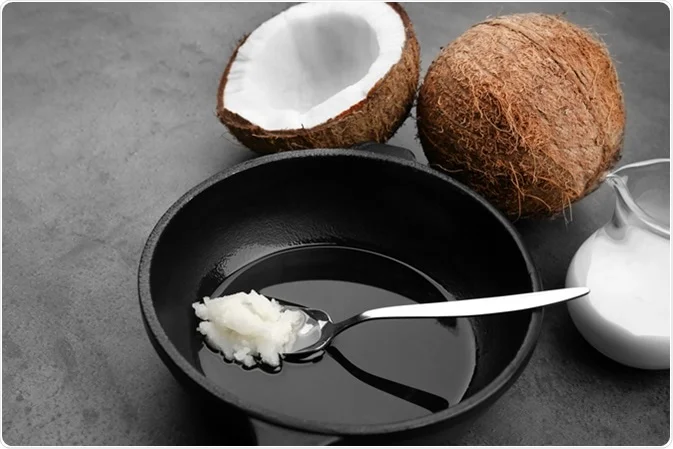Coconut oil is a versatile and popular ingredient in many different products, from food to skincare. But have you ever wondered about the coconut oil pH? In this article, we’ll dive into what pH means, what the pH of coconut oil is, and what that means for its uses and benefits.
What is pH?
pH is a measurement of how acidic or alkaline a substance is on a scale of 0 to 14. A pH of 7 is considered neutral, while anything below 7 is acidic and anything above 7 is alkaline. The human body has a natural pH range of 7.35 to 7.45, which is slightly alkaline.
What is the pH of Coconut Oil?
It can vary depending on the type of oil and how it was processed. Generally, unrefined, virgin coconut oil has a pH range of 6-7, while refined coconut oil can have a slightly higher pH of 7-8.
What Does the pH of Coconut Oil Mean for Its Uses and Benefits?
The pH of coconut oil is important to consider for its various uses and benefits. Here are a few key examples:
- Skincare: The slightly acidic pH of unrefined, virgin coconut oil is close to the pH of our skin, making it an excellent natural moisturizer and skin conditioner. It can also help balance the skin’s natural pH, which can be disrupted by harsh soaps and other skincare products.
- Cooking: Coconut oil’s pH isn’t as crucial for cooking as it is for skincare, but it’s still worth noting. The mild acidity of unrefined coconut oil can add a pleasant flavor to dishes, while the neutral pH of refined coconut oil makes it a good choice for recipes where you don’t want any coconut flavor.
- Haircare: The pH of coconut oil can be beneficial for hair health as well. The acidic pH of unrefined coconut oil can help balance the scalp’s natural pH, which can prevent dandruff and promote healthy hair growth.

It’s important to note that while the pH of coconut oil can have benefits for various uses, it’s not the only factor to consider. Quality, processing, and other factors can also impact the effectiveness and safety of coconut oil for different applications.
Comparison Table
There are a variety of oils with different pH levels, so let’s compare the pH of coconut oil to some common oils:
| Oil | pH Level |
|---|---|
| Coconut oil | 7-8 |
| Olive oil | 5.5-6 |
| Sunflower oil | 6-7 |
| Avocado oil | 4-6 |
| Castor oil | 5-6 |
As you can see, the pH level of coconut oil is relatively neutral, with a range of 7-8. Olive oil is slightly more acidic with a pH level of 5.5-6, while sunflower oil is slightly less alkaline with a pH level of 6-7. Avocado oil is more acidic with a pH level of 4-6, and castor oil has a similar pH level to olive oil at 5-6.
It’s worth noting that the pH levels of oils can vary depending on factors such as the method of extraction, processing, and storage conditions. Additionally, the pH of the oil doesn’t necessarily correlate with its quality or effectiveness for a particular use.
When it comes to using coconut oil for various purposes, it’s important to consider its pH level in relation to the intended use. For example, if you’re using coconut oil as a natural moisturizer for your skin, its neutral pH level can help maintain the skin’s natural pH balance. However, if you’re using it as a natural remedy for an acidic condition like heartburn or acid reflux, its pH level may not be as effective as other remedies with lower pH levels.
Overall, while the pH level of coconut oil is important to consider for certain uses, it’s not necessarily the most important factor to consider when choosing an oil for a specific purpose. Other factors such as the oil’s chemical composition, nutrient profile, and potential benefits should also be taken into account.
FAQs: The pH of Coconut Oil
1. What is the pH level of coconut oil? The pH level of coconut oil is typically around 7, which is considered neutral. It means that coconut oil is neither acidic nor alkaline but rather close to a balanced pH level.
2. Is coconut oil safe to use on the skin due to its neutral pH? Yes, coconut oil’s neutral pH makes it safe to use on the skin for most people. It is generally well-tolerated and can be applied as a moisturizer or for various skincare purposes.
3. Can the pH of coconut oil affect skin conditions like acne or eczema? The pH level is unlikely to significantly impact skin conditions like acne or eczema. However, some individuals may be sensitive to coconut oil, so it’s essential to do a patch test before using it on larger areas of the skin.
4. Is there a difference in the pH level of virgin coconut oil and refined coconut oil? The pH level of both virgin coconut oil and refined coconut oil is generally around 7, making them neutral. The difference between the two lies in the extraction process and potential nutrient content.
5. Can the pH of coconut oil affect the scalp or hair health? The pH makes it suitable for use on the scalp and hair. It can help nourish and moisturize the hair, promoting overall hair health.
6. Can coconut oil help balance the pH of the skin? While coconut oil itself has a neutral pH, it may not actively balance the pH of the skin. However, its moisturizing properties can help maintain skin health, contributing to an optimal skin pH level.
7. Is it necessary to consider the pH of coconut oil when using it for cooking? The neutral pH is generally not a significant concern when using it for cooking. It is a versatile oil with a high smoke point, making it suitable for various culinary applications.
8. Does the pH level of coconut oil impact its potential health benefits? The pH level is not directly related to its potential health benefits. The beneficial effects of coconut oil come from its unique composition of medium-chain fatty acids and other bioactive compounds.
9. Can the pH of coconut oil cause irritation or allergic reactions on the skin? For most people, coconut oil is well-tolerated on the skin due to its neutral pH. However, like any product, some individuals may experience irritation or allergic reactions. It’s essential to patch-test before using coconut oil extensively.
10. Can the pH of coconut oil be altered when combined with other ingredients or oils? The pH level is relatively stable and may not be significantly altered when combined with other ingredients or oils. However, the overall pH of a mixture may depend on the combined pH levels of all the ingredients.
Remember, while coconut oil is generally safe for most people, individual reactions may vary. Consult with a dermatologist or healthcare professional if you have specific concerns about using coconut oil on your skin or hair.
Conclusion:
Overall, the pH of coconut oil is an important aspect to consider for its various uses and benefits. Unrefined, virgin coconut oil has a slightly acidic pH that can be beneficial for skincare and haircare, while the neutral pH of refined coconut oil makes it a good choice for cooking.
By understanding the pH of coconut oil and how it interacts with different applications, you can make informed choices about how to use this versatile and beloved ingredient.
Originally posted 2023-03-11 11:26:04.

